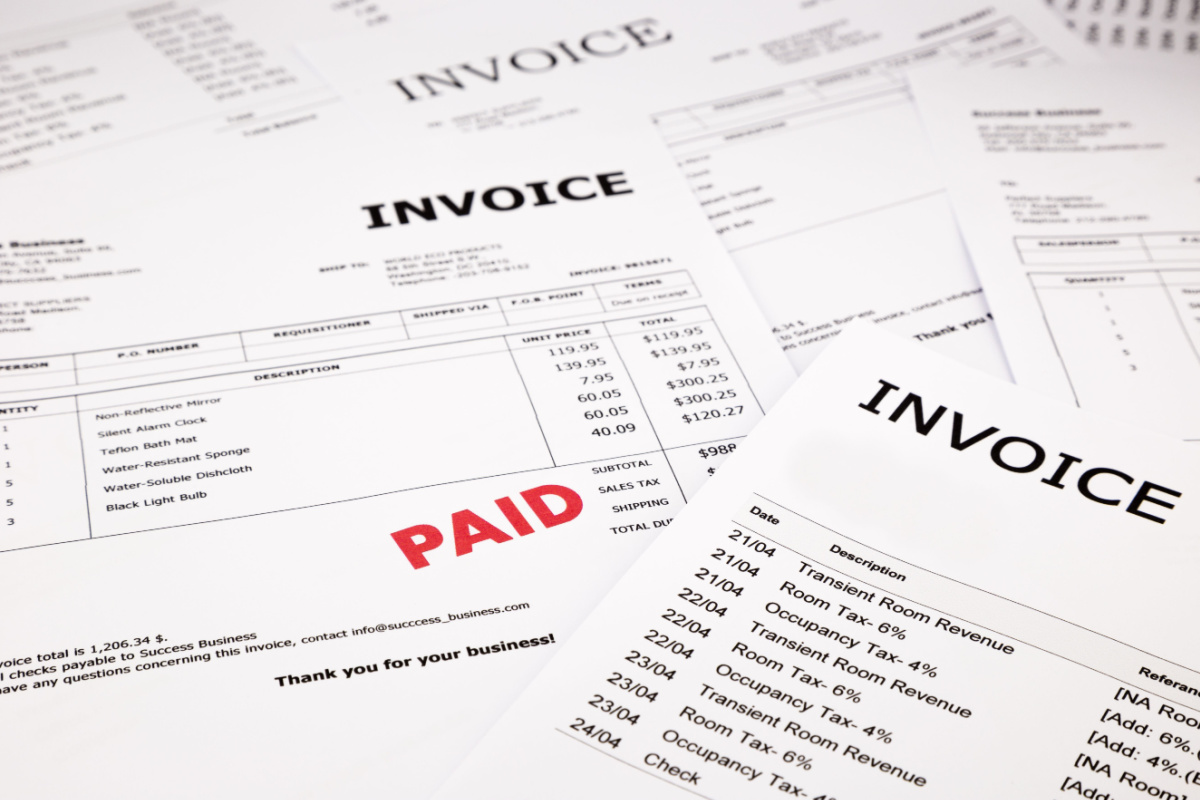Starting a franchise business combines the allure of entrepreneurship with the security of a proven-successful business model. Given that there are more than 750,000 franchise operations throughout the United States, it's evident that the business model is effective. However, it's no secret that the journey often begins with a hefty price tag. That's where franchise business loans come in.
Unlike traditional loans, these are customized to meet the initial setup costs, ongoing fees, and even the working capital needs specific to franchise businesses.
But how do they work, and how can a new business owner determine which loan is right for them?
Let’s explore your franchise financing options from SBA 7(a) loans to conventional bank loans and franchisor financing.
Have you ever dreamt of owning a slice of a big brand name? That's where franchise funding steps in. At its core, franchise funding is a specialized financial solution designed exclusively for aspiring franchisees.
Instead of starting from scratch, you're buying into a tried-and-tested business model – and these loans help cover the costs. From the initial franchise fee to inventory, equipment, and sometimes even working capital, the right funding can carry a substantial chunk of your startup expenses.
 The process? It starts with identifying a lender – a bank, credit union, or specialized franchise financier. Then, prepare a compelling application showcasing your business acumen, financial stability, and passion for the brand. Secure the funds, and you're one step closer to turning those entrepreneurial dreams into daily realities.
The process? It starts with identifying a lender – a bank, credit union, or specialized franchise financier. Then, prepare a compelling application showcasing your business acumen, financial stability, and passion for the brand. Secure the funds, and you're one step closer to turning those entrepreneurial dreams into daily realities.
There is no one-size-fits-all solution to franchise funding. There are many funding options to choose from, so it is best to do your research before jumping into any loan. Let’s review some popular methods of obtaining funding for a franchise.
The SBA is a government agency specifically designed to support budding entrepreneurs. The SBA doesn’t lend money directly. Instead, they work with banks, credit unions, and other lenders to offer small business owners and franchisees loans. What's special is that the SBA guarantees a portion of these loans. If you fail to pay back the loan, the SBA promises to cover a part of the amount.
The loans follow a similar path to the traditional lending system but have lower interest rates than other types of loans, starting as low as 3%.
This is because the SBA guarantees a certain portion of the loan (up to 85% for loans up to $150,000 and 75% for loans more than $150,000). That guarantee means less risk for the lender, which translates to a lower interest rate for you. SBA 7(a) loans carry a maximum loan amount of $5 million with no minimum. The loan term can be up to 25 years.
One of the major disadvantages of these franchise loans is that your provider may require you to pledge collateral. For SBA 7(a) financing, the value of the collateral doesn’t have to equal the value of the loan as long as you pledge all of your available business and personal assets as collateral. High collateral is good for your odds of approval but also means you could lose everything if you default.
Franchisor funding is when the company offering the franchise lends directly to you – the franchisee. Instead of getting a loan from a bank or another third party, you're borrowing directly from the franchise brand.
 Typically, franchisors might fund anywhere from $50,000 to $500,000. However, the exact amount varies depending on the franchise and your needs. Loan durations often range between five to 10 years, mirroring the terms you might find in traditional financing avenues. Interest rates can span from 5% to 15%, but the rates are contingent upon the franchisor, the state of the economy, and your financial standing.
Typically, franchisors might fund anywhere from $50,000 to $500,000. However, the exact amount varies depending on the franchise and your needs. Loan durations often range between five to 10 years, mirroring the terms you might find in traditional financing avenues. Interest rates can span from 5% to 15%, but the rates are contingent upon the franchisor, the state of the economy, and your financial standing.
Franchisors generally seek potential franchisees with a strong credit history, prior business experience, and a solid business plan. Financial readiness is also key, as individuals must have enough liquidity to cover initial costs. It's crucial to note that funds from franchisor financing are usually restricted to franchise-related expenses like inventory, setup, and fees rather than personal or unrelated business use.
Pros:
Cons:
Commercial bank loans are a form of traditional business loans that often feature loan amounts ranging from tens of thousands to millions of dollars. Terms typically span five to 10 years, with interest rates varying based on current market conditions and your credit profile. Generally, rates fall within a range of 4% to 10%.
Lenders typically dive into your business plan, evaluate your cash flow projections, and may require collateral such as real estate or equipment. A robust business plan and solid financial standing can speed up the approval process and grant you more favorable repayment terms.
Pros:
Cons:
Equipment financing helps franchisees purchase new commercial equipment, ranging from electronics and vehicles to heavy machinery. It's important to note that this funding is allocated explicitly for acquiring fixed assets.
 Financing can range from a few thousand dollars to upwards of a million, depending on the equipment's cost and your business's needs. Terms typically vary between two and seven years. Interest rates can range from as low as 4% to as high as 20%, depending on various factors like creditworthiness and market conditions.
Financing can range from a few thousand dollars to upwards of a million, depending on the equipment's cost and your business's needs. Terms typically vary between two and seven years. Interest rates can range from as low as 4% to as high as 20%, depending on various factors like creditworthiness and market conditions.
Lenders often scrutinize cash flow, operational history, and even the equipment's potential return on investment (ROI) when determining eligibility. Some lenders may also require a down payment, typically around 10% to 20% of the equipment cost.
Pros:
Cons:
A business line of credit operates much like a credit card, serving as a revolving line of credit that provides companies with flexible access to funds. The credit limits usually range from $5,000 to $250,000, offering businesses the liquidity required to manage operational expenses, finance growth, or tackle short-term financial challenges.
A business line of credit is a pre-approved pool of funds provided by a lender, which you can tap into as needs arise. Unlike a traditional loan, where you receive a lump sum upfront, here you draw from your credit line only when you need it.
You only pay interest on the funds you've used, not the entire credit line. Just like a credit card, you'll have a minimum monthly payment, but you can repay the balance in full anytime. As you repay, your available credit replenishes. You can use, repay, and reuse funds within your credit limit without reapplying.
Interest rates for business lines of credit are generally higher than those for traditional loans and can vary from 8% to 24%. A business credit score of 600 or above is commonly required to be eligible for a business line of credit.
Additionally, lenders often look for a minimum annual revenue, which typically starts at $50,000. Time in business is another consideration; most lenders require that your business be in operation for at least one year.
Pros:
Cons:
Accounts receivable financing, often called invoice financing, allows businesses to turn their unpaid invoices into immediate cash. Instead of waiting for customers to pay within their usual credit terms, businesses sell outstanding invoices to a financing company. In return, the financing company provides an up-front payment, usually a percentage of the invoice's total value. Once the customer pays the invoice, the financing company takes a fee and gives the remaining balance to the business.
 Typically, a franchisee can expect to receive anywhere from 70% to 90% of the total invoice amount upfront. Once the customer pays the invoice, the finance provider will release the remaining balance minus any fees.
Typically, a franchisee can expect to receive anywhere from 70% to 90% of the total invoice amount upfront. Once the customer pays the invoice, the finance provider will release the remaining balance minus any fees.
Commonly, finance providers charge a factoring fee, which is a percentage of the invoice amount, ranging from 1% to 5%. This fee can increase the longer it takes the customer to pay off the invoice. Some providers might also include additional service or maintenance fees.
The funds from accounts receivable financing can be used for a variety of business-related purposes. This includes:
Pros:
Cons:
Crowdfunding is a way new and old businesses alike can receive donations from others, usually through the Internet. This has changed the game because now anyone can help fund a business, not just banks or investors.
Unlike a traditional bank loan that comes with strict rules, crowdfunding allows you to set your own fundraising goals and ways to reward people who give you money. The business owner will often offer initial perks to anyone who pledges money in a crowdfund to be an attractive business prospect.
You can promote your business through a personal page or apply to be listed on a crowdfunding platform. Popular crowdfunding platforms include sites like Kickstarter, IndieGoGo, and GoFundMe.
Pros
Cons
The steps to getting a franchise loan are like any other business loan on the market.

Here are five steps anybody seeking a franchise loan should consider:
Most lenders will require the following information when applying for a franchise loan:
Franchising can be an excellent opportunity for individuals looking to start their own business without starting from scratch. Various financing options, such as franchise loans from banks and other financial institutions, can make this expansion more attainable.
These loans can help you cover various costs for purchasing equipment, securing a location, or hiring employees.
Still want to know more? Here are some common questions and answers about franchise funding.
Every lender will have unique requirements for financing eligibility, so it is wise to research your specific lenders to find the right fit. However, many lenders will have similar areas of interest that can help improve your chances of being approved for a loan.
A healthy credit score and a clean financial record can improve your loan eligibility. Review your credit report to see if there are any areas of improvement or any claims to contest that can help improve your credit score.
Your debt-to-income ratio (DTI) may also be factored into your loan eligibility, as lenders may be deterred by a high DTI. Paying off large debts quickly or improving your income with supplemental cash flow may improve your chances of loan approval.
Consider taking stock of your valuable assets that can be used as collateral, as offering collateral can often improve your chances of securing a loan. Assets are equipment, inventory, cash deposits, savings, property, or stocks.
Before opting for business franchise loans, make sure to check the Small Business Authority’s (SBA) franchise directory. You’ll want to ensure that the business is listed in the directory and eligible for small business loans for franchise businesses.
As a general rule, companies should meet the size standards set by the Small Business Administration (SBA), demonstrate repayment capability, and have a legitimate business objective. For more details and qualifications, check out the SBA Loans requirements on their website.
Yes, a down payment is typically required for a franchise loan. The amount of the down payment can vary depending on the lender and the type of franchise, but it's generally in the range of 10% to 30% of the total loan amount.
There is often a minimum credit score requirement for a franchise loan. The specific credit score requirement can vary depending on the lender and the type of franchise. Generally, lenders prefer to work with borrowers who have a credit score of at least 650 or higher.
However, note that credit score is just one of several factors that lenders consider when evaluating a franchise loan application. Other factors that may also be considered include the borrower's business experience, the financial strength of the franchise, the collateral available to secure the loan, and the borrower's ability to make a down payment or provide other forms of equity.
Each lender will have its own eligibility requirements and assessment process. In most cases, a very low credit score will result in an automatic denial. However, some lenders may be willing to offer shorter-term and smaller-sum loans to damaged credit applications. Keep in mind that you may be charged higher interest.